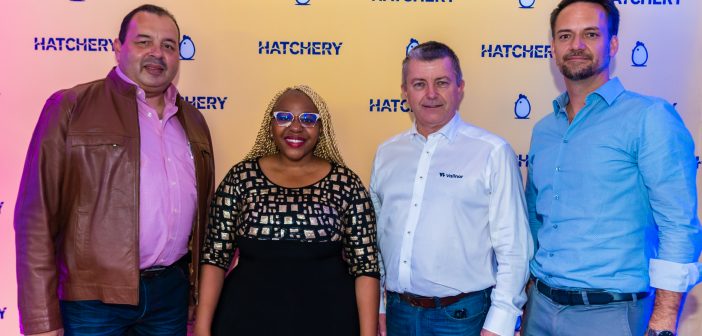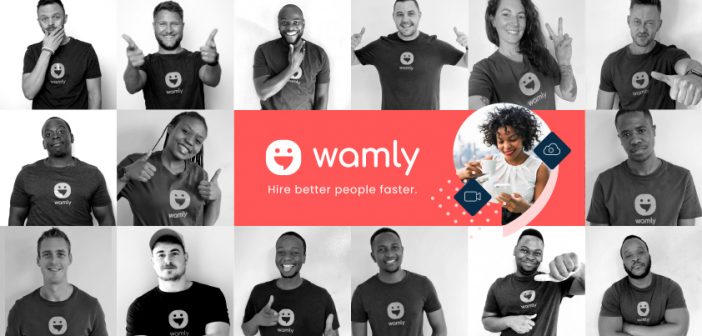Nigeria’s Helium Health acquires Qatar’s Meddy in rare Africa-GCC deal

Nigeria-based health tech startup Helium Health has acquired Meddy, a Qatar-headquartered and UAE-based doctor booking platform for an undisclosed amount.
The acquisition, termed “a great deal” by Helium Health CEO Adegoke Olubusi on a call, is unusual in the sense that it overlaps two regions that rarely do in tech: Africa and the Gulf Cooperation Council (GCC).
Meddy CEO Haris Aghadi and COO Abed Alkarim Khattab will join Helium’s leadership team as part of the deal. They will “play integral roles in Helium’s execution of its GCC strategy and operations.”
With a presence in six African countries — Nigeria, Ghana, Senegal, Liberia, Kenya and Uganda — Helium Health has signed more than 500 healthcare facilities. Over 7,000 medical professionals from these facilities now provide care to more than 300,000 patients monthly.
Typically, an enterprise client needs various services on one platform — from electronic medical record and management information systems to revenue cycle management, consolidated analytics and telemedicine services.
However, most platforms in the GCC have use cases that are more vertical than horizontal. For instance, Vezeeta and Okadoc help users book appointments, access teleconsultation services and order medications; Bayzat offers an online platform for HR administration, payroll management and health insurance; and Clinicy runs a digital healthcare management system. So, for enterprise clients to get a holistic EMR experience, they will need to stack these different products on top of each other.
Though the SF-based Helium Health has a wide range of B2B offerings, it lacks in these other areas especially in telemedicine and appointment bookings, which are more consumer-facing products. The company could have built out these services but acquiring Meddy presented a better option due its expansion play. Apart from providing a doctor booking platform and telemedicine product to manage bookings and patient reviews, Meddy offers marketing solutions for hospitals to improve their online presence and attract new patients.

Helium Health
With Meddy, the Y Combinator and Tencent-backed Helium Health can now cover a broader range of services health groups need. Meddy will merge with Helium Health’s patient-provider and revenue cycle management platform under the name Helium Doc.
“You don’t have a lot of people who can provide a suite like ours in the GCC. If they do, they’re doing it at a price point that’s so high that they’ve already priced out the market in that sense,” Olubusi said to TechCrunch.
“But we can provide a full suite where you can do your appointments booking, marketing solution, EMR, hospital management information system, and have everything in a one-stop shop. It saves you a lot of stress in the process from trying to consolidate many different systems.”
Aghadi adds that the partnership gives interoperability to its clients, an absent feature in other EMRs and siloed individual platforms.
Many legacy and new products do not have open APIs and that makes it difficult for data to move between them. Healthcare providers feel the brunt of this missing interoperability when they use such platforms to make uninformed health decisions.
“Interoperability is a very big challenge in the region, and having this one-stop place like ours solves that,” Aghadi remarked.
While two obvious factors — exploiting what other healthcare platforms lack and taking advantage of a growing opportunity in the GCC region (where investment in digital infrastructure will account for 30% of healthcare investment between 2023 to 2030) — drove this acquisition and partnership, there is a third, more subtle factor Olubisi and Aghadi point out: the teams.
According to both founders, the Helium Health and Meddy teams are identical in operations, technology execution, culture and market price points. These similarities made it easy for both companies to sign off the deal in less than four months.
“Beyond the actual product and market opportunity, what made this possible was really the composition of the team, how well they executed the fact that they share a DNA and culture that’s very similar to ours,” said Olubusi.
As both companies come together, Olubusi says the next plan is to figure out how better to serve the GCC market with its complete EMR solutions and, at the same time, roll out telemedicine and doctor booking services for its clients in Africa.
“Over the next few months, a lot of what we’re doing is being able to better roll out these consolidated product suites in our markets and serve them more,” he said. “I mean, we want to double, triple the growth of our client base over the next two to three years and extend our reach even further to make sure that Helium Health is the top health tech provider in the GCC region just as it is in Africa.”







